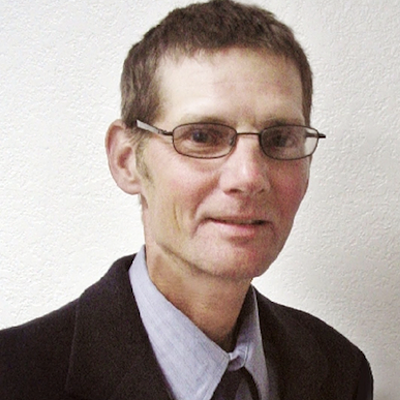But the actual cost for that smorgasbord in 1997 was $470 million, and that swelled to $667 million four years later. Voters also were told the transportation plan was nearly inviolate, protected by the county's Truth in Bonding Ordinance.
In fact, the Board of Supervisors has repeatedly rearranged the transportation bond plan, most recently under pressure from the Tucson City Council. The result--ratified by supervisors Dec. 14 and by the City Council last week--shifts millions of dollars in funding from voter-approved projects and adds a $10 million overpass for the Kino Parkway-22nd Street intersection.
Out of the mix is the $10 million that supervisors stripped from a voter-approved project, intended to widen 22nd Street from Park Avenue to Interstate 10. Supervisors took that action after city administrators had already tinkered with spending the same $10 million on Grant Road or Speedway Boulevard.
Now, Grant Road, from Oracle Road to Park Avenue, will remain bottlenecked. The new county-city agreement lifts $9.65 million from voter-approved widening there.
In all, the new agreement between the chronically feuding governments jacks up spending by $22.76 million, including the $10 million shifted into the Kino/22nd Street overpass. Completion of that project is five years away.
Also included in the changes:
· $10 million added to improvements on Broadway Boulevard between Euclid and Campbell avenues. In 1997, voters approved a measure that allocated $15 million for this project. The $25 million project, with expected completion in 10 years, will widen Broadway to six or eight lanes for one mile. It will replace the current five-lane road.
· $2.76 million added to $4 million approved by voters for improvements to West Valencia Road from Mission Road to Interstate 19. The project will boost that section of Valencia to six lanes from four.
· $7 million, the same as previously approved, for improvements to South Country Club Road between 36th and Milbur streets. The change chops about a half-mile from the project voters approved. The original plan would have extended improvements south to East Irvington Road; the new plan calls for five lanes from Ajo Way to Milbur and three lanes from Ajo to 36th. The road services an area of increasing traffic, including Kino Community Hospital, Tucson Electric Park and the Kino Sports Complex.
· A $10-million extension of Alvernon Way across the Rillito River to River Road. Voters approved $6 million, but the county has secured the balance in a special portion of gas-tax revenues. The extension melds with $15 million in widening and straightening of East River Road from Campbell to Alvernon. That construction, which seeks to match the River Road widening west of Campbell, further erodes the traditional River Road that activists fought to keep through the successful Keep It Kinky voter initiative in 1984.
To make up for the changes, the supervisors approved a plan to drop the $9.6 million previously approved for Grant Road, and to delete more than $7.4 million from a widening project of East Speedway Boulevard from Camino Seco to Houghton Road. The $17 million shift still leaves the projects nearly $5.7 million short.
Finally, the transportation revision keeps $20 million in county bonds for improvements to Houghton Road, but it moves the improvements from Golf Links north to Speedway, to Golf Links south to I-10.
Overall bond funding cannot be increased, and more changes to the plan voters approved in 1997 will be necessary.
County Administrator Chuck Huckelberry says there is no need for panic.
"Decisions must be made about from which project or projects the remaining $5.69 million in reallocation will be reallocated from, but those decisions can be made at a later date," he says.
But Huckelberry put pressure on the city to make up shortfalls for the priorities the city demanded, including the Broadway, Kino overpass and Houghton projects.
"It is important to emphasize ... that all additional funding must come from sources other than county bond funding," Huckelberry says.
A memorandum of understanding on the road projects and their funding was hastily developed by the county last May to mute City Hall's complaints about the county's new $732 million bond proposal, which voters approved by a wide margin. The agreement stated that the city "accepts responsibility for securing these funds."
But the city is strained financially, and two proposals--a city-drafted road plan as well as an activist-drawn proposal--were crushed by city voters in the last two years. Both called for sales taxes to fund all or part of the proposed improvements. Two similar sales-tax increases, proposed by the county in 1986 and 1990, also were overwhelmingly rejected by voters.
The changes sailed through the Board of Supervisors and the City Council with only two dissents, from Democratic Councilmen Steve Leal and Jose Ibarra. Both complained that voters were misled, because the Kino overpass was not even discussed, let alone placed on the bond package seven years ago.
Leal also likened the Kino overpass to a grade-separated intersection of the type prominent in the transportation plans that voters killed.
The 1986 Neighborhood Protection Amendment also calls for voter approval for major transportation projects like freeways or grade-separated intersections.











